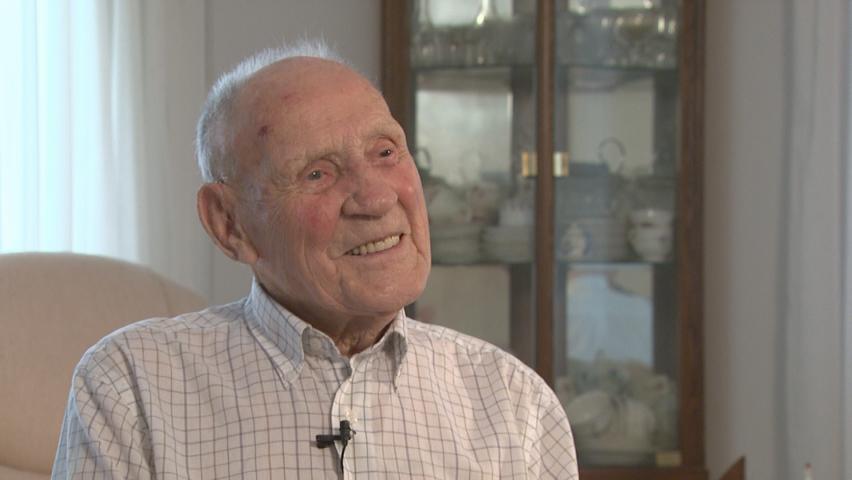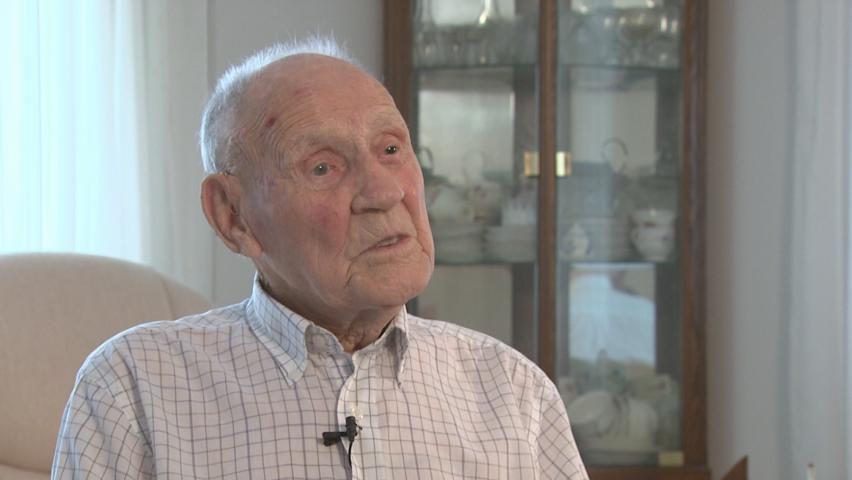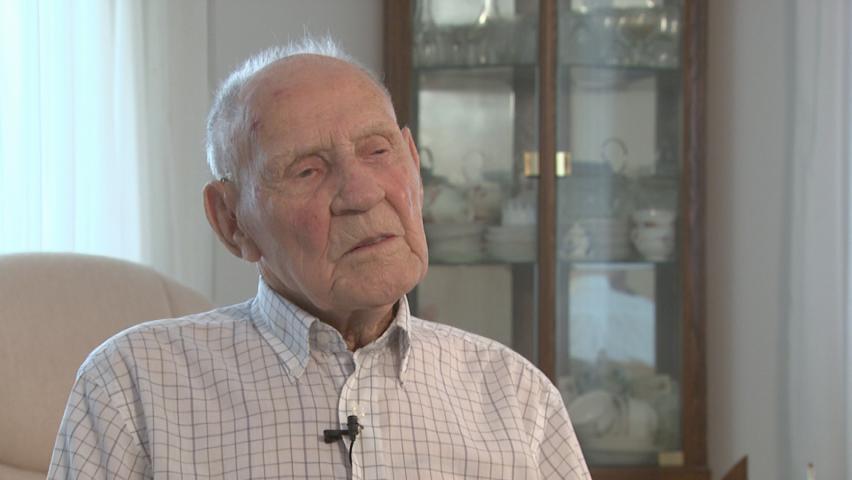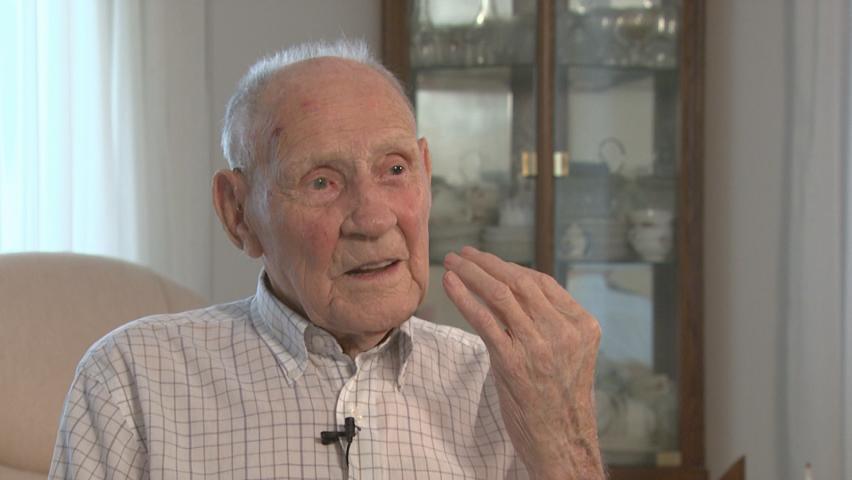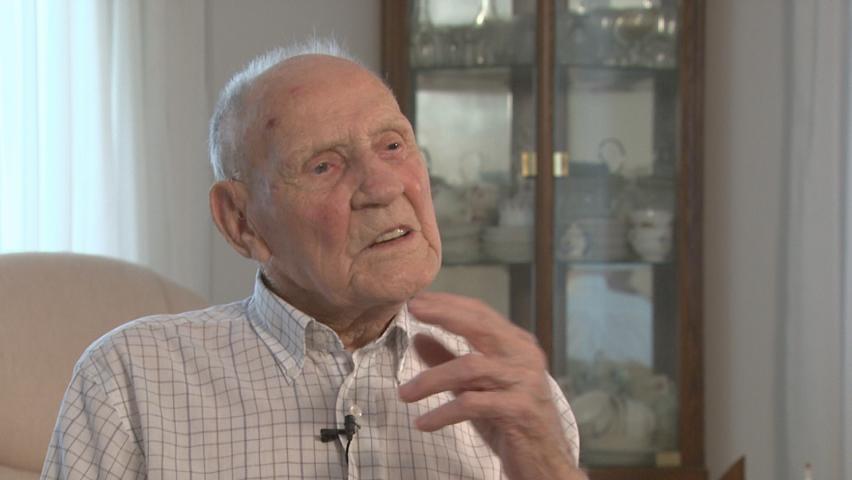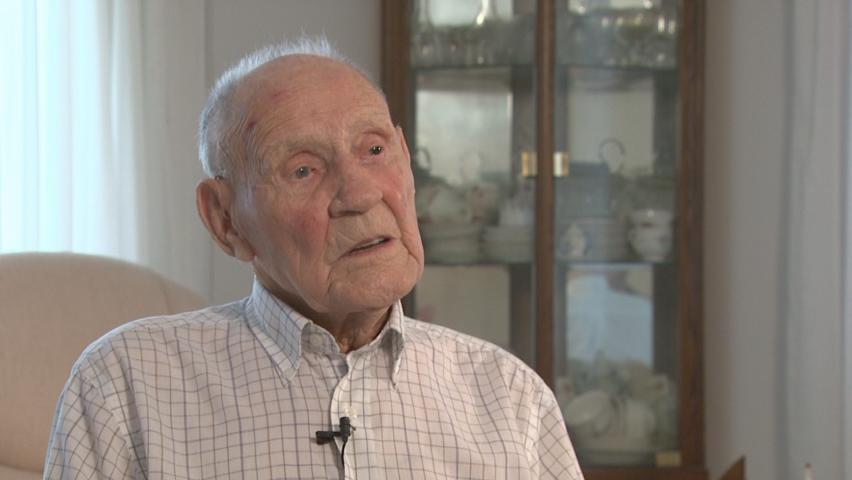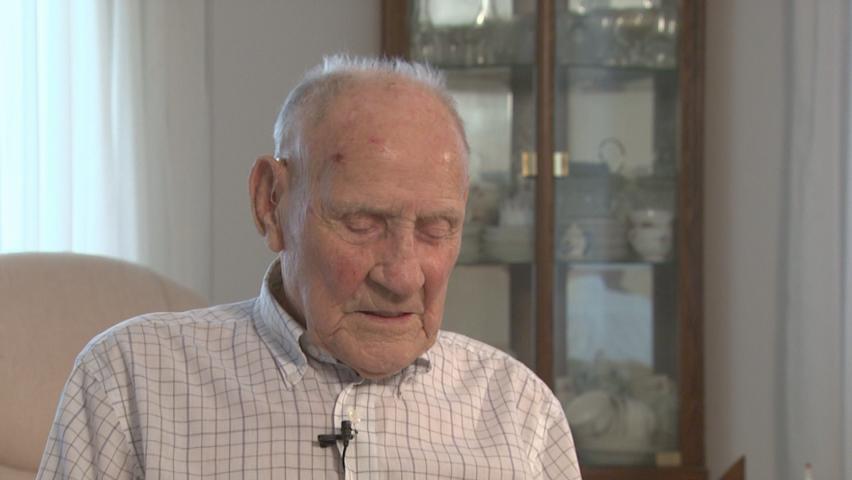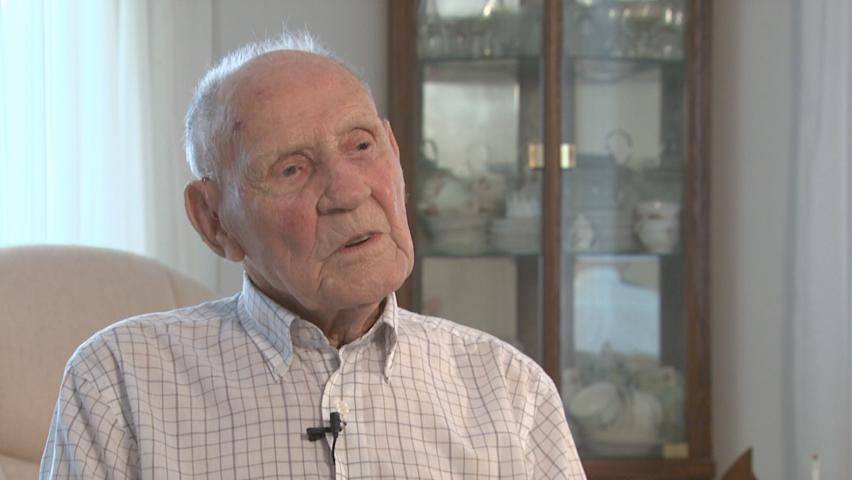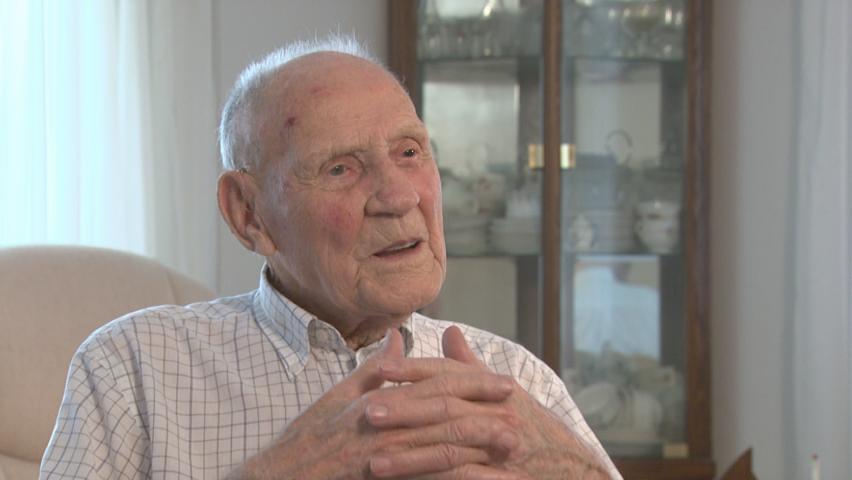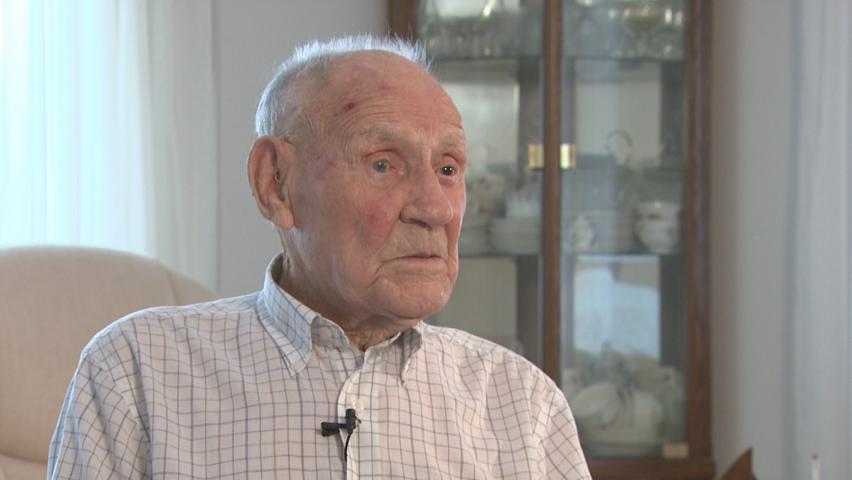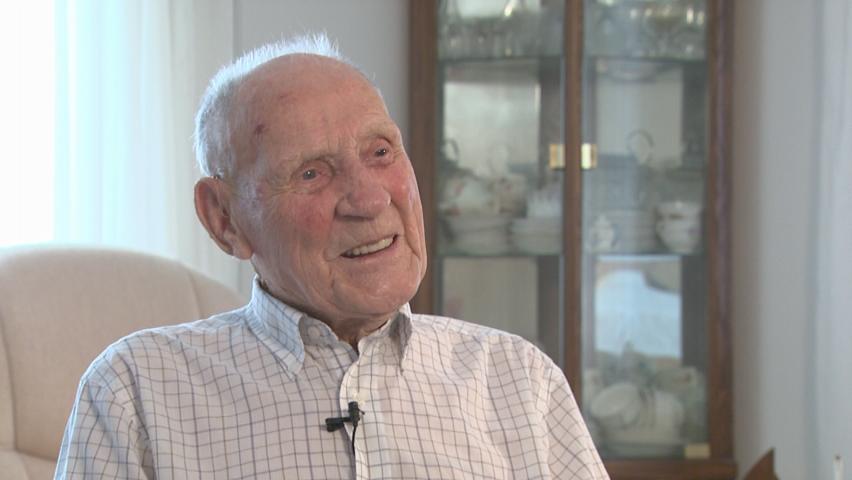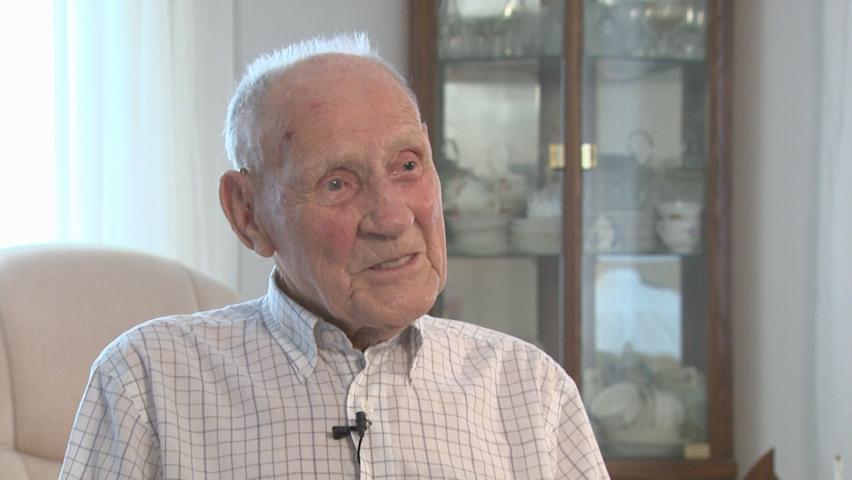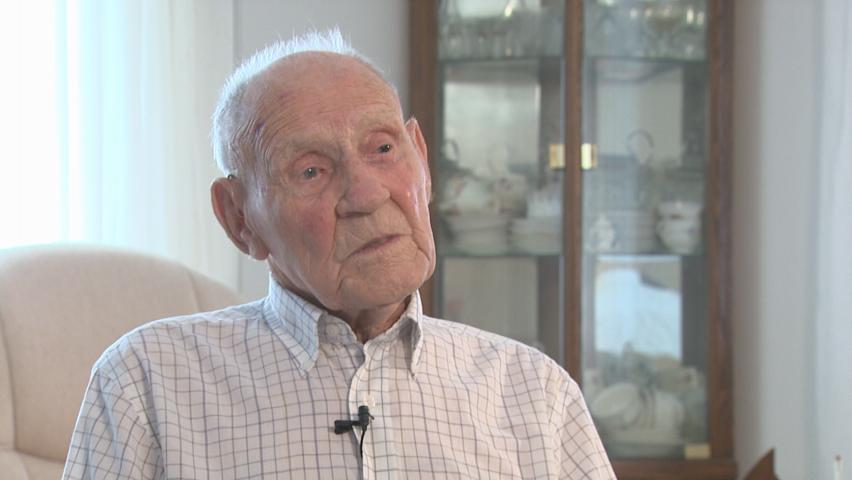Marching 22 Kilometres a Day
Heroes Remember
Marching 22 Kilometres a Day
I think it was the 9th of January,
we marched for 37 days. And there was snow
on the ground and we slept in barns.
One night especially we had a long
ways to go for a barn, I think it was about
10 o’clock and we’d been marching.
They expected us to march 22 kilometres a day,
that’s what they said so that would be about
12 miles a day or 10 miles a day.
We’d come to these farms and at dinner time
we would stop and steal rabbits and cook
them up and we’d have a little fire going
to dry our socks so as to speak and
we had a kettle with a rabbit in and this
one farmer he said, “All my rabbits are gone!”
And the officer in charge said,
“They got to eat!” You know we thought
they’d shoot us eh?
And one other place we stopped he was
re-patriated from Canada and that night we
had cabbage and ham, you know.
The next morning we had porridge,
rolled oats anyhow, milk on it.
And he said they treated me good in Canada
so this little village was behind him so ya,
little different things.
We got up and milked cows one night,
early in the morning and some of the guys
had no idea how to work that machine.
And a lot of the barns we slept in had grain.
They done a lot of their thrashing in the
wintertime. They would put it in their barns
and then thrash it and we would shell out
wheat and fill our pockets with that and,
I don’t know, we got along pretty good.
We were at Stalag 2-D at that time and
that’s close to Stettin and we could hear the
Russian gunfire or the German gunfire,
whoever it was and Red Cross,
you’re not allowed to leave your prison
camp in advancing army, you know,
enemy advancing army so that’s what the
march was about. We stopped at a place,
Sandbostel was the name of the place,
it was I guess a hospital,
I have no idea what they said it was but
anyhow we stayed there for about
two or three days. And we were marching
in civilians and they were just nothing but
just skin and bones. Their lips swollen and
somebody would be smoking a cigarette and
they’d ask for it and they would go to reach
for it and he had no coordination,
they would fall right over.
And some of them were brought in.
In Germany when they hauled manure out to
the farm they’d lay a railroad track or track and
they’d have gondolas they’d dump it instead
of going out with a wagon and whatnot
and they were bringing some of them
in and they would just dump them and
drag them in. And that night when they
were feeding them, they brought out this
(inaudible) of soup or whatever it was and
they rushed and upset it and anyhow the next
morning somebody said there was eight
hundred, somebody said twelve hundred but
they were piled like cord wood alongside
the building and about 10 o’clock a team and
wagon come along and throwing these bodies in.
That was the worst…
Related Videos
- Date modified:




